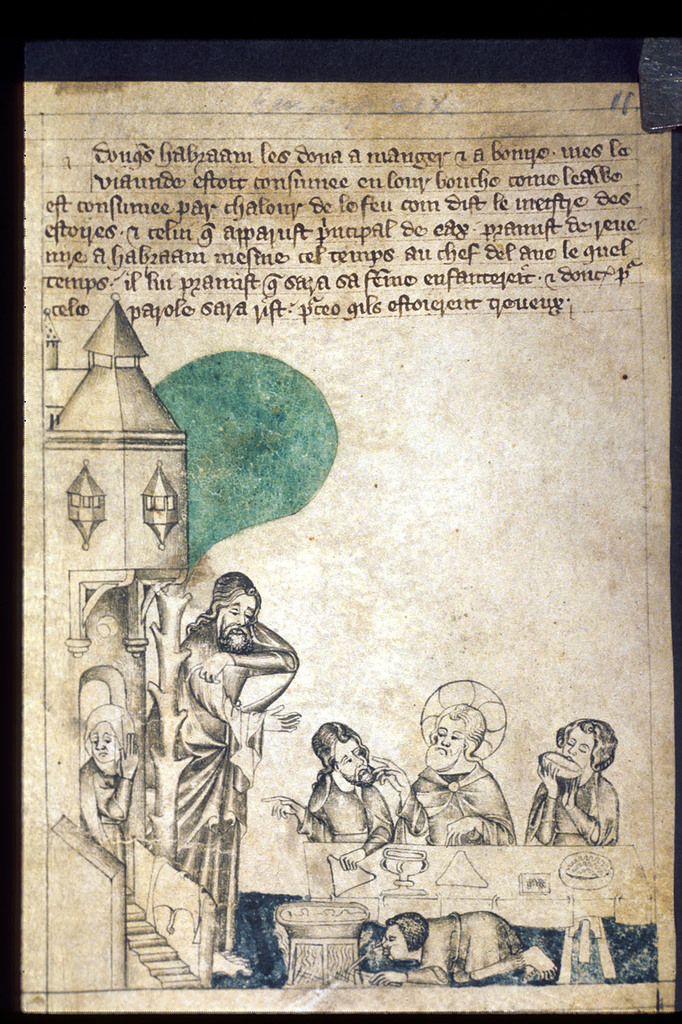“For I have chosen him, so that he may command his children and his household after him to keep the way of the LORD by doing righteousness and justice, so that the LORD may bring upon Abraham what He has spoken about him” (Genesis 18:19; all Scripture quotations are from the New American Standard Bible).

Most Christians are familiar with the story about Abraham interceding for the people of Sodom. Three men [who turned out to be messengers of the Lord, one of whom spoke with divine authority (perhaps Jesus Himself)] informed Abraham that God would destroy the city of Sodom, where his nephew Lot lived. Abraham ended up bargaining with God, persuading Him to spare the city if He could find ten righteous people there (Genesis 18:16-33). God would not find ten righteous people, but He did spare Lot by taking him and his family out of the city before its destruction. (Judging by how Lot’s family conducted themselves after escaping Sodom, Abraham would have had to negotiate God down to finding only one righteous person.)
That is all merely for introduction. I want to focus on a few other aspects of this story. The Bible tells us that God chose to enter into a covenant with Abraham. He called Abraham to become the father of many nations, including “the chosen people,” Israel. Why was Abraham chosen? Why were his descendants chosen?
“Now the LORD said to Abram,
‘Go forth from your country,
And from your relatives
And from your father’s house,
To the land which I will show you;
And I will make you a great nation,
And I will bless you,
And make your name great;
And so you shall be a blessing;
And I will bless those who bless you,
And the one who curses you I will curse.
And in you all the families of the earth will be blessed’” (Genesis 12:1-3).
God chose Abraham and his descendants to be His witnesses in the world and eventually to bring forth the Messiah, Jesus, to become our Savior. (See Galatians 3:1-7 for more on this.) God did not want Abraham to keep all of the blessings to himself, nor did He want Abraham’s descendants to horde God’s blessings. God blessed His chosen people so that they could bless others.
God’s covenant, calling, and blessing to Abraham were generational. He did not keep them to himself; he passed them on to his son, Isaac, who then passed them on to Jacob, and so on. Their mission was to be witnesses for the one true God to the entire world.
This mission would reach this climax when Jesus came. His disciples were not supposed to keep His message to themselves. They, too, were called to bless the entire world with the testimony that the one true God had offered salvation through Jesus Christ:
“And Jesus came up and spoke to them, saying, ‘All authority has been given to Me in heaven and on earth. Go therefore and make disciples of all the nations, baptizing them in the name of the Father and the Son and the Holy Spirit, teaching them to observe all that I commanded you; and lo, I am with you always, even to the end of the age’” (Matthew 28:18-20).
Like Abraham, we have a mission. We have received a covenant blessing to be children of God through faith in Jesus Christ. We do not keep this blessing to ourselves. We must share the good news with all who will receive it.
God called Abraham to “keep the way of the Lord by doing righteousness and justice.” We, too, must make righteousness and justice our aims. Let us devote our lives to pursuing righteousness and justice for our communities, culture, country, and the entire world. He did not call us to cling to our rights, privileges, and comforts, but to keep His way and do His will.
In Genesis 18, God revealed His will to Abraham. Note that Abraham did not pray only for his nephew. He probably thought, “I know there are some bad people in that city, but I cannot believe they are all bad. There have to be some good people in Sodom. I don’t want Lot to get hurt, but what about them?” Abraham was willing to pray that God would even spare sinners so that the righteous would not suffer.
How do we pray? Do we pray merely for our own comfort and blessings? Do we pray only for our families, friends, and other people we like? Are we willing to pray for the people who are hard to love? Are we bold to pray that God would show His righteousness, justice, and mercy to all people, even those whom we think are undeserving?
Are we eager to teach our children and grandchildren to live and pray like this: To share God’s blessings with everyone they can reach?
We cannot afford to hold onto God’s blessings. We must share them with others. Most importantly, we must train future generations to share God’s blessings and Gospel with others. God’s call upon your life is bigger than you may think. It is not limited to you. It extends to all nations and until He returns.
I would like to hear from you. Share your thoughts or suggestions by clicking the “Leave a comment” link below.
Copyright © 2021 Michael E. Lynch. All rights reserved.